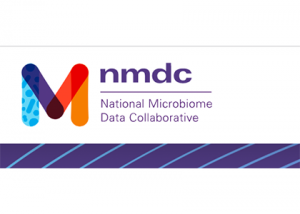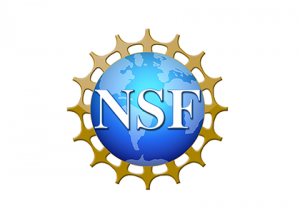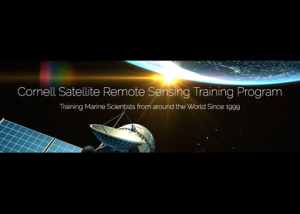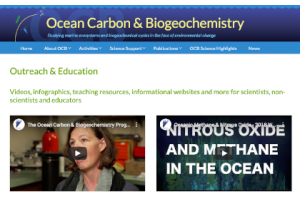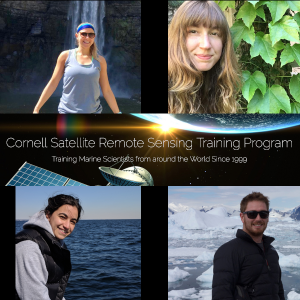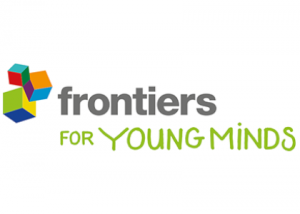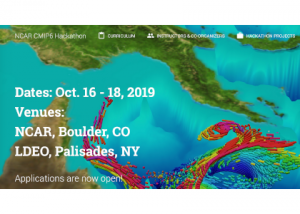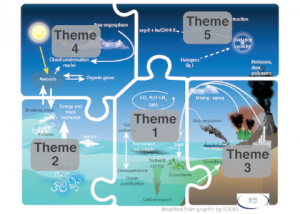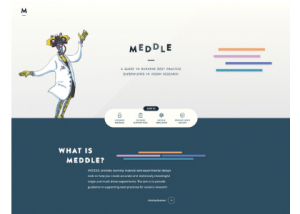OCB Postdoc Exchange!
A key objective of OCB is to train the next generation of ocean scientists and engage early career scientists in OCB and partner program meetings and training courses by providing travel and tuition support, networking, and mentoring opportunities.
Current and recent examples:
- GOOD-OARS Summer School, Penang Malaysia, November 4-11 2025. The school will be hosted by the Centre for Marine and Coastal Studies of Universiti Sains Malaysia (CEMACS) and is established under the Global Ocean Oxygen Decade (GOOD) and Ocean Acidification Research for Sustainability (OARS) programmes of the UN Ocean Decade. It aims to train the next generation of ocean oxygen and acidification scientists and researchers in the foundations of both fields, with instruction and lectures from world experts in a friendly setting for discussion. Apply by January 10, 2025
- Annual OCB summer workshop
- OCB scoping workshops
- Gordon Conference in Chemical Oceanography
- IMBeR IMBIZO Meetings (odd years)
- IMBER ClimECO Summer Schools (even years)
- SOLAS Summer Schools
- International Ocean Colour Coordination Group (IOCCG) Lecture Series
- International Ocean Colour Science Meeting (IOCS)
- Cornell Satellite Remote Sensing Course
- Univ. Maine Ocean Color Remote Sensing Course
- Training courses on ocean acidification
- Training courses on biogeochemical sensors
While we do not entertain individual requests for travel support, early career support is a high priority of bulk travel support requests submitted to OCB (see below for current opportunities). OCB strives to highlight the work of students and postdocs at its meetings and provide opportunities for interacting with federal agency managers and other scientists. OCB also maintains an early career position on its Scientific Steering Committee (SSC).
Early Career Opportunities & News
- Core Fulbright U.S. Scholar Program
- Young Earth System Scientists community
- View our Jobs & Postdocs page for current openings
- View our Student Opportunities page for undergraduate, MS and PhD listings
Pathways to Science: Early Career Fellowships & Scholarships
The NMDC is launching the NMDC Ambassador program to provide training and support for early career researchers who are motivated to engage with their respective research communities to lower barriers to adoption of metadata standards. APPLY NOW Application deadline: May 21, 2021, 11:59PM PT Eligibility ✔Affiliated with a US institution Including US-affiliated researchers who are […]
Read MoreClick for full details: Program Solicitation NSF 21-538 Full Proposal Target Date March 3, 2021 November 12, 2021 Second Friday in November, Annually Thereafter SYNOPSIS The Division of Ocean Sciences (OCE) offers postdoctoral research fellowships (PRF) to provide opportunities for scientists early in their careers to work within and across traditional disciplinary lines, develop partnerships, and […]
Read MoreCOURSE CANCELLED FOR 2020 The Ocean Carbon & Biogeochemistry (OCB) Program (www.us-ocb.org) will support tuition, travel, and housing expenses for up to five U.S.-based students or postdocs to participate in the 2020 Cornell Satellite Remote Sensing Training Program taking place June 1 – 12, 2020 at Cornell University in Ithaca, NY.
Read MoreA new NSF supplemental funding opportunity (INTERN) allows students to test out non-academic career paths while in graduate school. PIs can request up to six months of additional support for current graduate students supported on active NSF grants. These supplemental awards allow students to pursue internships that will broaden their professional experience and enable them […]
Read MoreNew Biological Pump from Emma Cavan (Imperial College London) and McCork Studios, which incorporates some key remineralization processes, from this recently published Nature paper. New OA podcast featuring Libby Jewett, founding Director of the Ocean Acidification Program at the National Oceanic and Atmospheric Administration (NOAA). Topics discussed include: Chemistry of ocean acidification Impact on animals […]
Read MoreThe Cornell Satellite Remote Sensing course took place June 3 – 14 in Ithaca, NY. The goal of the course was to teach participants the basic skills needed to work independently to acquire, analyze and visualize data sets derived from a variety of satellite sensors. The course also covered image analysis methods to work with […]
Read MoreThis new journal is written for young people interested in science, and all the articles are also reviewed by children! This is a great place to try your hand at writing science articles for a very different but very interested audience. Frontiers for Young Minds is committed to providing high-quality, plain-language articles about cutting-edge science. […]
Read MoreThe CMIP6 Hackathon will be a hands-on event including tutorials, software development, data analysis, and opportunities for collaboration centered around effective computational workflows and CMIP-related science. The event will be held concurrently at two locations: the NCAR Mesa Lab, in Boulder CO, and the Lamont Doherty Earth Observatory, in Palisades NY. Limited funding is available […]
Read MoreApply to attend workshop on Ocean-Atmosphere Interactions: Scoping directions for U.S. research The workshop will be held October 1-3, 2019 at The Woodlands at Algonkian in Sterling, VA, and will gather U.S. scientists working at the air-sea interface to identify research priorities and facilitate the communication and collaboration required for future significant research advances. Leadership […]
Read MoreRationale for a web-based Best Practice Guide WEBSITE www.meddle-scor149.org The complexity of the natural environment and the number of drivers often prevent the design of a single fully factorial experiment evaluating the impact on a given species or ecosystem. For example, an experimental design to investigate 4 drivers, with 5 treatment levels per driver, and […]
Read More

